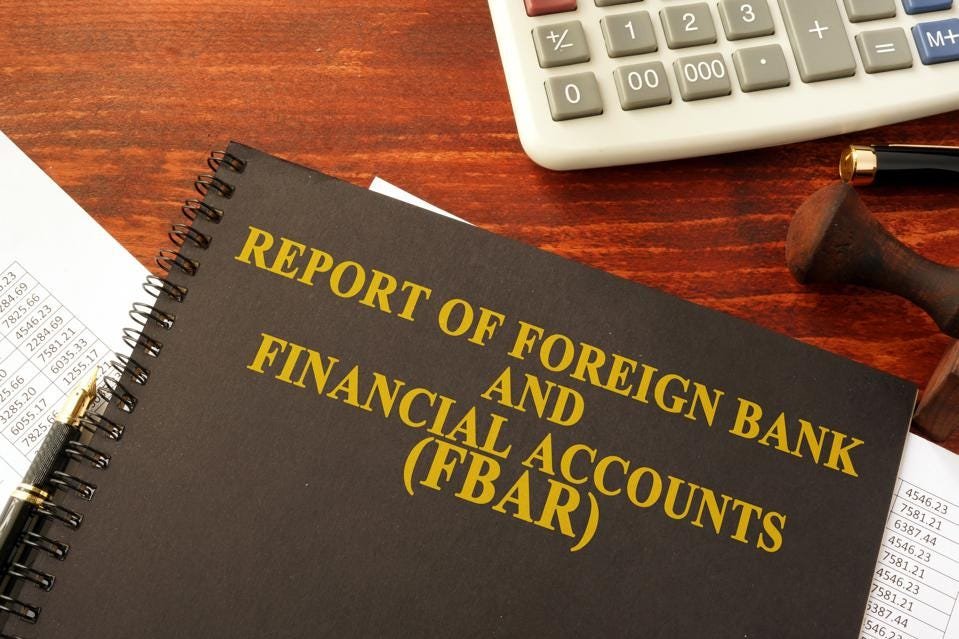Publications

The Importance of Building Generational Wealth
The process of building generational wealth is intended to provide younger family members — and even those not yet born with financial opportunities and a head start to long-term stability. Generational wealth refers to financial assets passed down from one generation to the next. They include property, investments and businesses but also other assets, such as collectibles or royalties from oil and gas holdings.

IRS Form W-9 Changes and Their Impact on Trusts and Estates
In March 2024, the Internal Revenue Service (IRS) unveiled a revised version of Form W-9, Request for Taxpayer Identification Number and Certification, marking a significant update since its last revision in 2018. This change introduces new reporting requirements, particularly affecting flow-through entities such as trusts and estates. Refiliing may be necessary in certain circumstances.

Innovative Philanthropy: Beyond Traditional Grantmaking
Innovative alternatives that are reshaping how philanthropic goals are achieved
Here are the top three questions clients ask about alternatives to grantmaking:
1. What are the primary purposes that program-related investments (PRIs) within social welfare activities should achieve? PRIs within social welfare activities should primarily carry out one or more of the purposes specified under section 170(c)(2)(B) of the Internal Revenue Code 2. How can a 501(c)(4) organization engage in political activity and lobbying while keeping its status as a social welfare organization? 3. What are the tax implications and operational considerations when using non-501(c)(3) structures for philanthropy?

Corporate Transparency Act: Updating Legal and Other Documents
Practitioners need to modify their procedures to accommodate new filing requirements of the Corporate Transparency Act (CTA) took effect Jan. 1, 2024. Hers are practical steps practitioners should take to modify their practices to accommodate the new CTA requirements.

Cracking the Code: BOI and Trusts for Accountants
This is a critical moment for accountancy practices to showcase their expertise in trust management and CTA compliance. Staying updated with these developments and proactively managing reporting obligations will be essential for navigating the regulatory landscape with the Corporate Transparency Act of 2024.

Navigating The Evolving US Estate Planning Landscape
Estate planning has evolved into a vibrant field marked by substantial transformations in recent years. These changes are propelled by updates in legislation, technological advancements, and shifts in societal norms. As a trust and estates attorney, I closely monitor these trends and understand the significance of staying abreast to offer superior service to my clients. Here are the key topics in contemporary estate planning and the advantages of engaging with either large or boutique law firms.

Generative AI: Revolutionizing Professional Services For Wealthy Families
The integration of Artificial Intelligence (AI) into professions like law, accounting, and investment management has been evolving over several decades, with significant acceleration in recent years. Here's a brief overview of AI's impact on legal matters.

Navigating the Transfer of Ownership and Control
Understanding trusts, family limited partnerships and the ‘Tragedy of the Commons’: Transferring Ownership and Control Through Trusts and FLPs, Advantages of Trusts and FLPs.

Year-End Tax Planning Considerations for Families with Property Interests in the US
The end of the year presents a strategic opportunity for family enterprise advisors to guide their clients in reviewing their wealth and estate planning strategies.
This is the perfect time for clients to reflect on their financial objectives and align them with their current and future financial commitments. Whether their interests lie in philanthropy, planning for generational business transitions, or navigating surplus wealth goals, effective year-end planning can help optimize their financial outlook.

Do The Right Thing: Returning Looted or Stolen Art (and How Not to Buy It in the First Place)
Returning stolen and looted art is a complex and lengthy process, involving legal and political challenges. Nonetheless, transferring ownership to the government for repatriation, as exemplified by the Worcester Art Museum, aligns with property laws and represents the morally right course of action. Objects of this nature should be returned to their rightful owners or to the countries or cultures from which they originated if there is any doubt regarding their true ownership. To safeguard yourself from such situations, diligent research and thoroughness are imperative.

IRS Releases Proposed Regulations on Reporting & Income Taxation of Digital Assets
In August of 2023, the IRS proposed regulations aimed to align tax reporting on digital assets with tax reporting on other financial assets. They would provide much-needed guidance and clarity on the taxation of digital asset transactions, ensuring consistent reporting and treatment across different types of assets such as crypto. We can help you navigate your taxes and estate planning with Cryptocurrency, NFTs, and other digital assets. There are additional considerations and expertise that Matthew Erskine keeps up to date with and can help you plan for the future with your digital assets.

Planning For Estates That Contain Firearms
Estate planning involving firearms requires careful consideration and adherence to legal requirements. By understanding the legal issues, choosing the right executor or trustee, considering a gun trust, keeping accurate records, and exploring buyback programs, you can ensure that the transfer of firearms in your estate plan is done legally and safely. Consulting with an attorney experienced in firearms and estate planning can provide valuable guidance throughout the process.

What to do When You win the Lottery
Receiving a windfall is both exciting and overwhelming; something estate planners should anticipate while creating an estate plan for their client. Even smaller windfalls can be a life changing event. Here are some recommended actions to consider taking to manage your newfound wealth responsibly.

Aretha Franklin’s Estate: Why Copyrights Require Estate Planning
The Aretha Franklin estate is a high-profile, and expensive, lesson in how not to manage copyrights in an estate. These copyrights should be considered assets and an integral part of the client’s estate. Such planning includes the management and distribution of copyright assets after the copyright owner passes away. Proper estate planning can ensure the protection and transfer of copyright ownership, as well as provide for the financial well-being of heirs and beneficiaries.

FDIC Changes Insurance Coverage Of Trust Bank Accounts
The FDIC issued new regulations, effective April 1, 2024, on how the insured amounts are calculated. These changes make it simpler to calculate what is, and is not, insured but will still require some adjustment in how much is held in trusts.
The FID treats revocable and irrevocable trusts differently. Revocable trusts, which include informal trust accounts such as Pay on Death (POD) or As Trustee For (ATF) accounts are insured up to $250,000 per unique beneficiary up to a maximum of five beneficiaries, provided that 1) the bank account title states that the account is for a trust, 2) each beneficiary is named in the correct place, and 3) each beneficiary is a living person, charity or non-profit organization. So, if a revocable trust account has only one beneficiary, the insurance limit is $250,000, if the revocable trust has five or more beneficiaries, the insurance limit is $1,250,000 total.

The Corporate Transparency Act Part Two: The impact on family firms doing business in the US
The CTA requires existing and future companies, either formed or registered to do business in the US, to electronically file a report with the Financial Crimes Enforcement Network (FinCEN) of the US Treasury Department. These reports will file into an as-yet-nonexistent database of individuals who are direct or indirect beneficial owners of the reporting company, as well as individuals reporting the information for the reporting company. Companies must provide beneficial ownership information.

The Corporate Transparency Act: Changing the Way Families Doing Business in the United States Think About Confidentiality and Data
On January 1, 2024 – and family businesses that are either US entities or are registered to do business in the US need to make preparations for reporting under the Corporate Transparency Act or face fines and even potential jail time. For many, this act has flown under the radar, and family enterprise advisors should begin helping their clients understand the implications now

Avoiding (or at Least Deferring) Taxes on the Sale or Gifting of Art
If your client is an artist, collector, or inheritor of art, when it comes time to plan to sell or gift the art, sale at auction could result in half of the hammer price going to taxes and fees. Consider using the charitable status of organizations like the Center for Art Law or Charitable Trusts to help defer or avoid the tax.

Highlights Of the Art Market in 2022
Artprice.com has released its report, “The Art Market in 2022”. At 72 pages, it is a comprehensive look at the global art market, which is especially interesting to professional advisors to collectors of Art. International fine art auction turnover rose slightly in 2022, more than one million artworks appeared at auctions in 2022, of which almost two-thirds (65%) found buyers.

What Are the Duties of A Trustee?
Trust Agreement is the written document directing the management of the property, the payments of income and principal, and the scope and duration of the Trust. What are the Duties of the Trustee? The duties of the Trustee arise from the Trustee’s obligation to carry out the Grantor's intentions in creating and funding the Trust. There are five general duties of the Trustee – to be prudent, to carry out the terms of the Trust, to be loyal to the Trust, to give the Trust their personal attention, and to account to the beneficiaries of the Trust.
